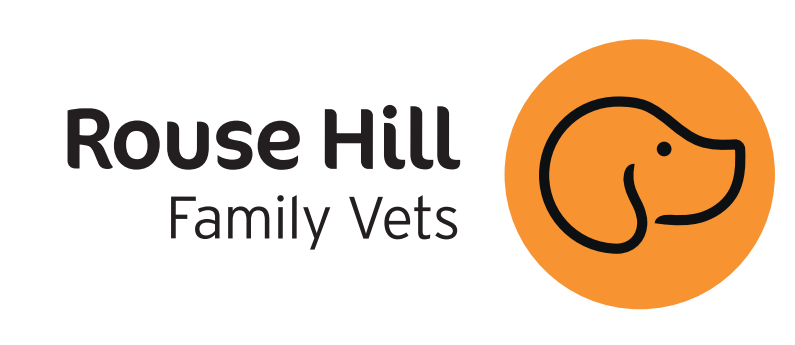
Leptospirosis is a potentially fatal disease which has recently emerged again in the Greater Sydney area. In 2023, there were 15 confirmed cases of Leptospirosis. Fortunately, there have been no confirmed cases in The Sydney Hills district. In 2023 leptospirosis cases were reported in the Eastern Suburbs, South Western Sydney, Inner South Sydney, Hunter Valley and South Coast (Huskisson).
What is Leptospirosis?
Leptospirosis is a bacterial disease that can affect humans and animals, including your pets. The organism primarily affects the liver and kidneys
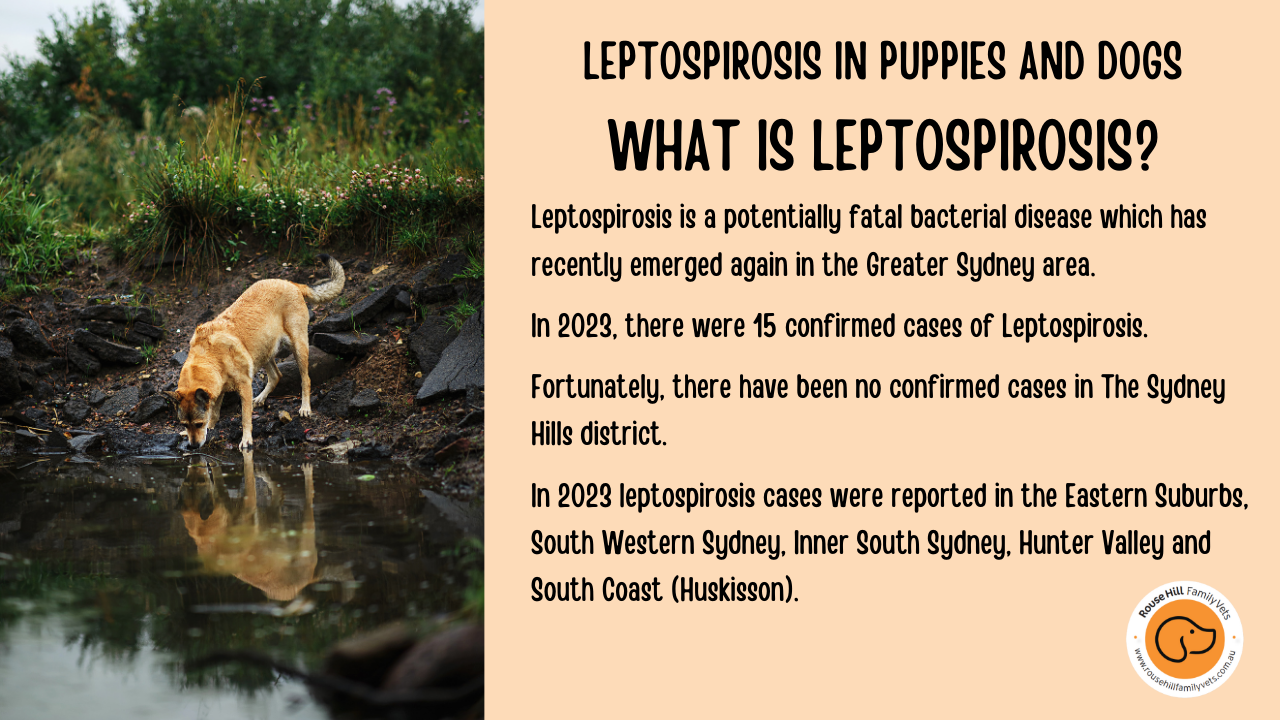
Clinical signs of Leptospirosis?
Clinical signs vary and are nonspecific and include:
- fever
- excessive water consumption
- vomiting
- abdominal pain
- diarrhoea
- inappetence
- severe weakness and depression
- severe muscle pain and stiffness
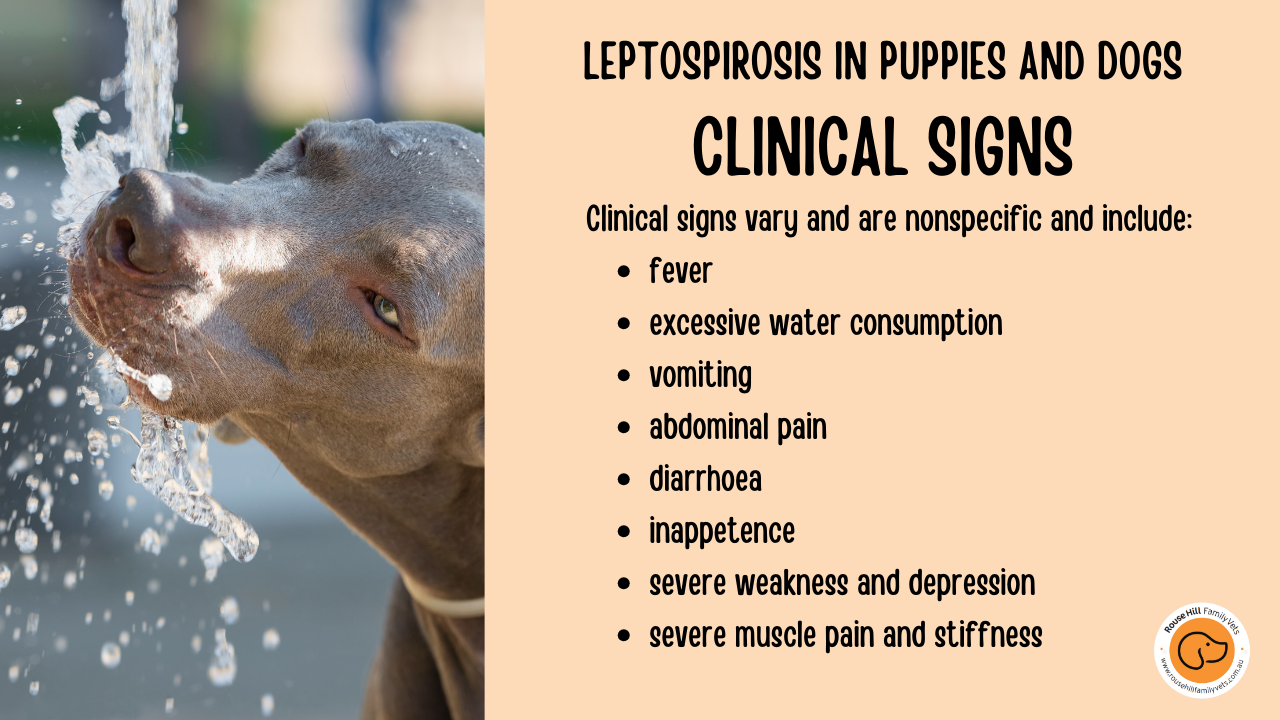
How is Leptospirosis spread?
Bacteria is spread through the urine of infected animals, which can get into water or soil and can survive there for weeks to months. Humans and animals can become infected through contact with this contaminated urine (or other body fluids), water or soil. It can enter the body through skin or mucous membranes (eyes, nose or mouth), especially if the skin is broken from a cut or scratch. Drinking contaminated water can also cause infection.
The time between exposure to the bacteria and development of disease is usually 5 to 14 days, but can be as short as a few days or as long as 30 days or more.
How is Leptospirosis diagnosed and treated?
As Leptospirosis causes non-specific symptoms, diagnostic testing often starts with a physical examination including bloodwork, urinalysis, radiographs, ultrasound, coagulation testing, ELISA test and PCR testing.
Treatment includes intravenous and oral antibiotics, intravenous fluid therapy and supportive care depending upon which organs are affected by the bacteria and the current symptoms. In cases of severe renal failure, dialysis may be required.
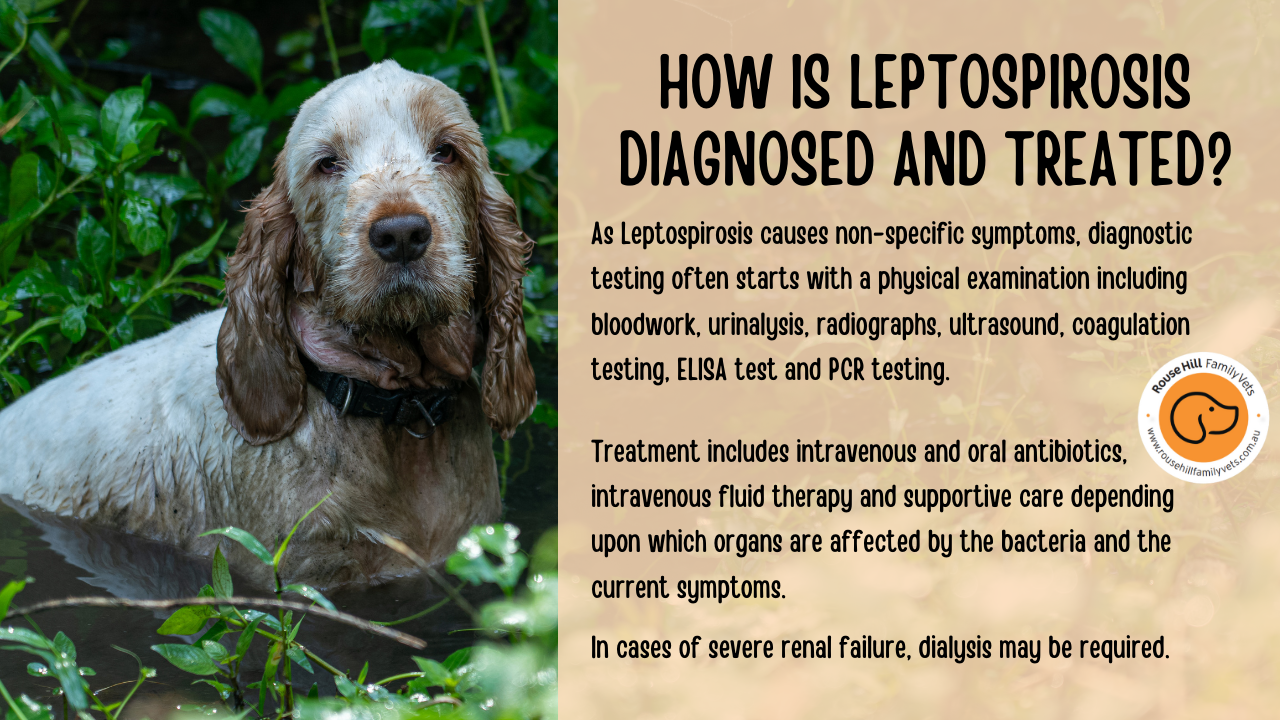
How can I protect my puppy against Leptospirosis?
Vaccination and environmental management is the best way to keep your puppy/dog safe from Leptospirosis. There are many strains (types) of leptospires (the bacteria that cause Leptospirosis) and not all of them can be vaccinated against, and so, vaccination does not provide 100% protection.
- Vaccination involves two vaccines 2-4 weeks apart with a booster every 12 months.
As stated above, as the vaccine is not 100% effective, environmental management is essential in preventing leptospirosis. We recommend limiting contact with sources of infection by:
- Limiting swimming or drinking of stagnant water
- Avoiding contact with possible bacteria hosts such as rodents and farm animals through rodent control and fencing
- Avoiding contact with dogs infected with leptospirosis
- In areas with active Leptospirosis outbreaks, avoid close dog to dog contact like doggy day care and dog boarding (There are no active outbreaks in the Sydney Hills District).
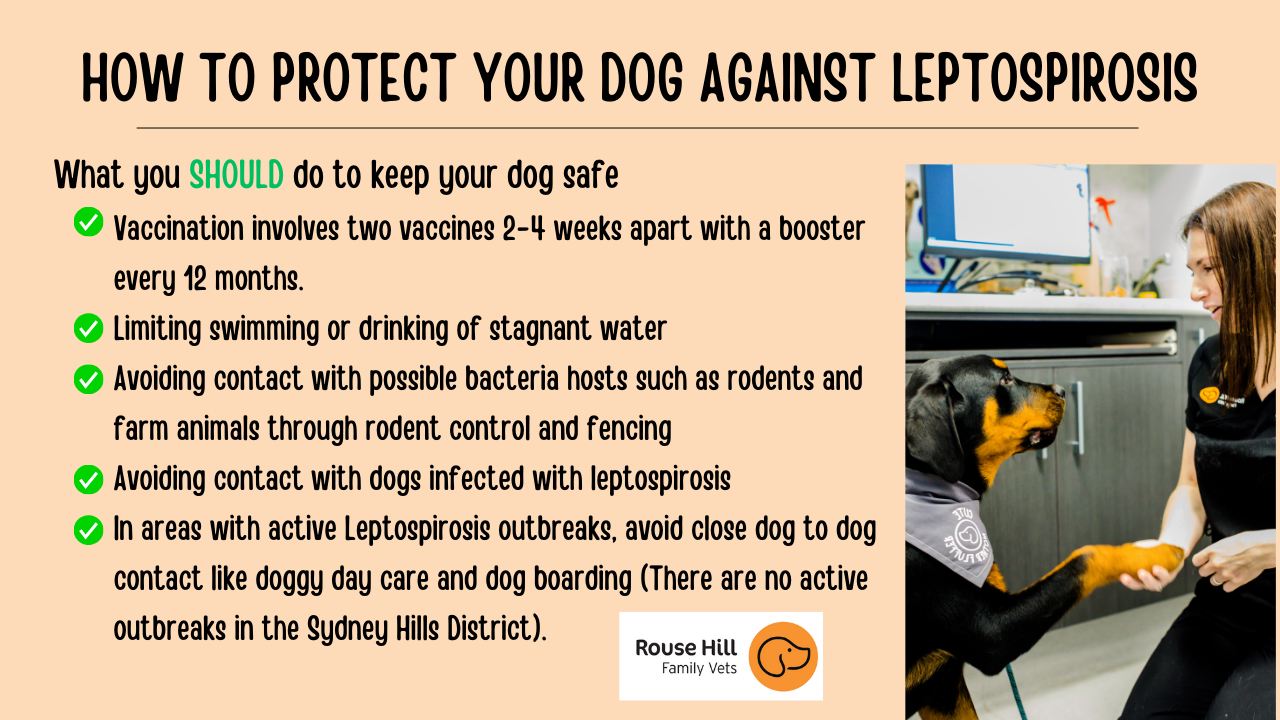
Given that Leptospirosis is zoonotic, how do I protect myself against infection?
If your dog or puppy has become infected with Leptospirosis you must take steps to prevent yourself or others from becoming infected with disease due to an infected pet. The primary mode of infection from pets to humans is through direct or indirect contact with contaminated urine, animal tissues or organs.
In some cases, leptospires can be shed in the urine for as long as 3 months after infection as a result of inadequate or lack of treatment.
To prevent infection follow these guidelines:
- Do not handle or come in contact with urine, blood or tissues from your infected pet before it has received proper treatment
- If you need to have contact with with urine or animal tissues, wear protective clothing including gloves and boots
- Always wash your hands after handling your pet or anything that might have your pet’s urine or faeces on it.
- If you are cleaning surfaces that may be contaminated or have urine from an infected pet on them, use an antibacterial cleaning solution or a solution of 1 part household bleach in 10 parts water.
- Make sure that your infected pet takes all of it’s medicine and follow up with your veterinarian
